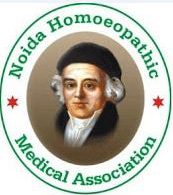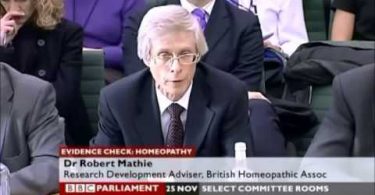Sir William Osler, the father of modern medicine. He said about Dr Hahnemann,‘No individual has done more good to the medical profession than Samuel Hahnemann’.
Of course, homeopathy is holistic (i.e., it understands and treats disease as a whole-body phenomenon) and homeopathic remedies are derived from natural sources. But it cannot simply be equated with these concepts. Homeopathy is a very distinct and complete system of medicine based on a simple principle of healing called the Law of Similars. This law states that a disease can be cured by a substance if that substance can cause, in a healthy person, symptoms similar to those of the disease. In fact, that is what the word “homeopathy” literally means — similar [homeo] suffering [pathy]. While other holistic healthcare systems may be based on other principles or on accumulated experience and folklore, homeopathy, by definition, is the system of medicine based on this one cardinal principle.
As a medical discipline, homeopathy is certainly much better-known and better-accepted in other countries today. It is widely practiced in Europe, India, Pakistan, and Latin America. In France, it is estimated that 32 percent of family physicians use homeopathy [Bouchayer]; in England, 42 percent of physicians refer patients to homeopaths [Wharton]. Homeopathy is integrated into the national healthcare systems of many countries, including Germany, India, Brazil, Mexico, Pakistan, Sri Lanka, and the United Kingdom. Indeed, homeopathy is one of the four most widespread approaches to medical treatment in the world, alongside traditional Chinese medicine, herbal medicine, and conventional medicine [Poitevin].
Homeopathy is also a proven medical system. Hundreds of double-blind placebo-controlled studies have been conducted over the past few decades, especially in Europe and India. They have proven that homeopathic remedies are indeed effective medicine.
Modern homeopaths have tried to justify the law of similars by comparing it to the effectiveness of vaccines — which involve giving small doses of an infectious pathogen to prevent a later infection. However, this analogy is not apt. Vaccines involve measurable doses of attenuated or killed organisms or their proteins, and operate by a known mechanism — they trigger an immune response. There is no analogy to homeopathic treatments.
The law of infinitesimal doses also runs contrary to chemistry, pharmacology, and thermodynamics. Homeopaths today use dilutions of substances which essentially remove all traces of the substance from the final dilution. There is not likely to be even a single molecule of the original drug in the final remedy which is given to the patient. Homeopaths conclude from this fact that the substance is transferring its essence to the water into which it is diluted. The more it is diluted, the more potent is the water. They offer, however, no possible explanation for how simple water molecules can contain the essence of far more complex substances.
Modern homeopaths have also tried to rescue the notion of infinitessimals by invoking the concept of water memory. They claim that water molecules can form a structure that contains the information of the homeopathic remedy. However, such claims are fanciful to the point of invoking magic and are devoid of any evidence. Water structure is very transient and ephemeral. They last moments and could not survive repeated dilution, let alone ingestion, absorption into the body, and transport to whatever their alleged site of action is.
Other theories for how ultra-dilute remedies could have biological effects include the effects of nano-particles supposedly detected in homeopathic solutions. However, the experiments purporting to identify these particles have been poorly conducted and subject to contamination and other sources of error, and only proponents of homeopathy believe this theory to have any substance. Similarly, homeopaths sometimes refer to the strange and counterintuitive theories of quantum mechanics as validating the implausible foundations of homeopathy. Unlike the “laws” of homeopathy, however, the fundamental theories of quantum physics have been demonstrated scientifically. The fact that some strange ideas have turned out to be true does not validate the theories of homeopathy, which have failed to produce convincing experimental evidence for 200 years.
Hahnemann developed his ideas before the disease theory of illness was fully developed. In other words, during his time physicians did not yet understand that illnesses were caused by specific diseases; that a given disease, such as diabetes, has a common underlying pathophysiology — a specific malfunction of a specific tissue, organ, or organ system leading to a specific disorder with recognizable signs and symptoms. This modern theory of illness has lead, for instance, to the treatment of diabetes with insulin replacement, vastly improving the quality and duration of life of patients suffering from this disease.
Homoeopathy looks to dispel myths through scientific research
Critics of homeopathy confidently declare that there’s no evidence for homeopathy, and even more it is amazing that at the lack of scrutiny that’s given to this statement by the media. Whether this declaration is made through simple ignorance, stupidity or with the deliberate intent to deceive, would make an excellent topic for investigation. Either way, the assertion that there’s no evidence for homeopathy is plainly and clearly wrong.
1) Homoeopathy claims to have an effective medicine to prevent spread of the H1NI virus
India is in a grip of fear as the swine flu death toll touches 2,000 and over 33,000 people across the country test positive for the infection.
Even as medical scientists struggle to come up with a vaccine to prevent the further spread of the epidemic, homoeopaths claim to have an effective medicine to prevent the spread of the H1NI virus causing the influenza. “We were the first ones to come up with a preventive medicine for H1N1” claims Jayesh V Sanghvi, Vice-Chairman of the Global Homeopathy Foundation (GHF), an association of homeopathy practitioners in the country.
2) IIT scientists have said the sweet white pills work on the principle of nanotechnology.
Homeopathic pills containing naturally occurring metals such as gold, copper and iron retain their potency even when diluted to a nanometre or one-billionth of a metre, states the IIT-Bombay research published in the latest issue of ‘Homeopathy’, a peer-reviewed journal from reputed medical publishing firm Elsevier.
IIT-B’s chemical engineering department bought homeopathic pills from neighbourhood shops, prepared highly diluted solutions and checked these under powerful electron microscopes to find nanoparticles of the original metal.
In case of homeopathic treatment, what I have observed in my rational practice is that the outcome of the homeopathic treatment is more than the input. For example one of my patients who were suffering from piles, fissure and fistula was advised to undergo surgery. Since fistula is a structural disease where an additional canal from anus to the perineum is created and the discharge drains out of the opening even I felt that it needs to be operated what dynamic homeopathic remedies has to do with a surgical disease. Yet it was the first patient a decade back who wanted me to treat him homeopathically despite of knowing my opinion that a surgical disease needs surgery, who gave me courage to treat a surgical disease. And to my surprise he was completely cured of the disease. In such cases when I compare the cost and risk of surgery to which the patient might have been exposed is saved with homeopathic medical treatment. Many such cures lead me to say that the efficiency of homeopathic treatment is more than one, if I have to apply concepts of Physics to homeopathy.
Some sections of the scientific community proclaim that homeopathy is a pseudo-science, i.e. they argue that homeopathy’s clinical evidence is weak and that its basic principles violate modern scientific laws. Some go as far as to say that the ‘Law of Similars’ is an ancient belief based on sorcery and magic. These assertions are far from the truth.
Can a system of medicine that is pseudo-science influence thousands of people so positively that that it becomes an observable fact by homeopaths and others? Can such a scientifically implausible system bring about a treatment so positively in patients that it can even be testified by any advanced medical test
Homeopathy worked more than two centuries ago and continues to work even today on a daily basis.
Dr Samuel Hahnemann’s Vision
“It’s his vision of cure which is still the same for centuries to come where generations of antimicrobial have become obsolete.





